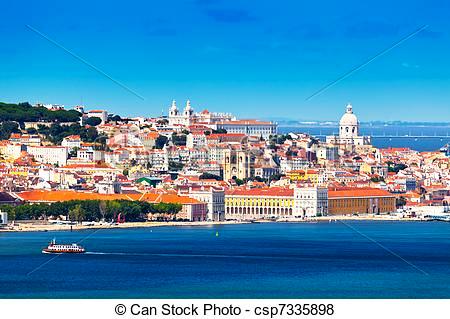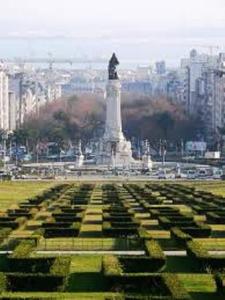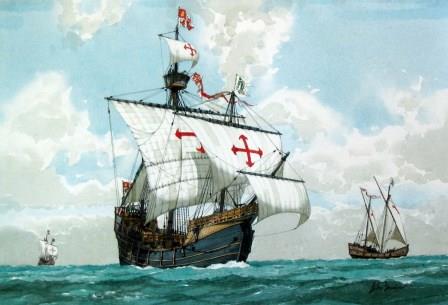On the Road Again
At last my lunch arrived, and since everyone else had already been served, I ate hurriedly. In addition to the everlasting lunch wait, the rest rooms were the worst I had ever seen. I was not sorry to say “adios” to the café.
That first day was long. One of the young Portuguese, Tó, spoke English relatively well, and he rode in the same van with Harry and me, ostensibly so that I would not feel completely cut off by the rapid Portuguese conversations. The teens’ discourses were almost constantly flowing and ebbing in the vehicle.
The translating began well, but when you don’t use a language on a regular basis, it is exhausting to sustain a conversation in it. Tó did valiantly, but as he and Harry became involved in some of the other interactions, I found myself listening to a lot of Portuguese. They translated in short hand from time to time, which was just enough to frustrate me because I wanted to be able to join in the conversations, and could not.
Madrid
The next stretch of driving ended around 9:30 p.m. in Madrid. We stopped at a restaurant for supper where we exited the vehicles, stretched our legs, and waited to see if the place was open. After some “conversating” with the management, they agreed to open early for us. Yes, in Spain 10 p.m. is an early supper.
We were seated, and the waiter gave us menus. I was determined to avoid another omelet situation, so I kept away from the “tortillas,” which is what they are called in Spain. (If you feel confused, imagine how how this morning lark [me] was handling supper at that hour – and dealing with three languages.) I found something on the menu that I recognized: pollo. Yes, chicken! I ordered it. Orders made, the Portuguese asked me what I was eating, and that was how I learned that they say, “frango” (frahn’ goo) for chicken. Two languages so similar to each other had two wildly different words for chicken!
In the long interval between ordering, and eating, the Portuguese tried valiantly (and successfully) to converse with me. They were indefatigable. Finally, someone asked me, “How are you?” slowly, and in Portuguese. I dredged up my high school Spanish and responded, “Estoy cansada.” (I am tired.”) My interrogator instantly came back with something that the folks around us found hysterically funny. She repeated it again slowly in Portuguese: “Estás cansada, ou casada?” I thought that I was getting a Portuguese language lesson, and that in Portuguese “casada” = “cansada” in Spanish. But, from the tone of the laughter it occasioned, it had nothing to do with a vocabulary malfunction. It was more like they were laughing at a joke kind of hilarity, and it was contagious.
I looked to Harry for help, but would you believe the man was still laughing his head off at this joke that I did not understand? Finally, he caught his breath, and told me: “She asked you if you were tired, or married.” A few more words of explanation, and I got the word play: casada = married and cansada = tired. I laughed again with them. After some thought, I realized the humor was the right hand of fellowship. I knew then that I could love these people. Who else did I know who could make me laugh even when I didn’t know
what was so funny?
We finished eating around midnight, and went outside. I was amazed at all of the people milling around downtown Madrid – including even very young children. Harry told me that is because they take a three-hour siesta from 1 p.m. till 4 p.m.That is a cultural idea I could seriously get into. Except, maybe, the part about being up till midnight.
On to Barcelona
It was quieter on the ride to Barcelona. We stopped there at the Spanish branch of the mission, and they put us up for the night. I don’t remember much that happened after dinner, but I do remember how grateful I was for the growing friendships, and that I had a bed and a pillow at the end of that long, long day.









